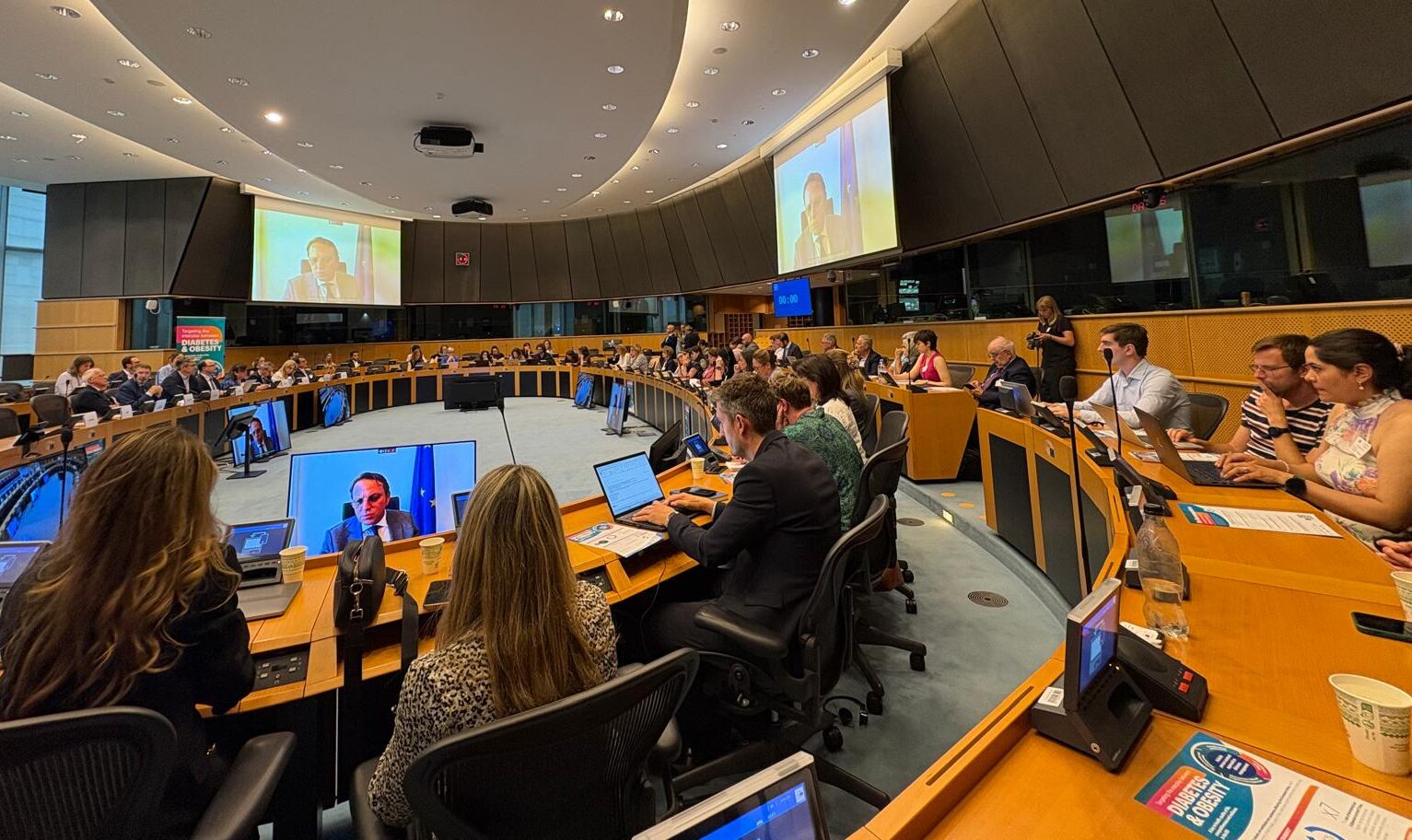On June 24, MEP Ignazio R. Marino and the European Diabetes Forum (EUDF) organized an event at the European Parliament addressing the urgent need to tackle the growing burden of diabetes and obesity. This gathering of European policymakers, healthcare professionals and patient advocates highlighted a fundamental truth: these conditions cannot be addressed in isolation, especially when considering their impact on cardio-kidney-metabolic (CKM) health.
The Interconnected Health Crisis
By 2050, diabetes and obesity are expected to affect 55 million Europeans. Globally, these conditions already impact hundreds of millions: 830 million people are living with diabetes, while 890 million are affected by obesity. Both conditions have similar root causes and often occur in tandem, with around 90% of type 2 diabetics also experiencing obesity. This stark connection has given rise to the term “diabesity.”
But the problem extends beyond diabetes and obesity alone. Both conditions are closely linked with cardio-kidney-metabolic diseases such as chronic kidney disease, atherosclerotic cardiovascular diseases, heart failure and metabolic dysfunction-associated steatohepatitis (MASH). These conditions rarely occur alone, sharing underlying risk factors and creating complications that significantly impact patient outcomes.
A Call for Integrated Action
The European Parliament discussion delivered clear recommendations for holistic, patient-centered care that addresses the burden of diabetes, obesity and their associated complications. This plan emphasizes prevention, early intervention and an integrated care approach that recognizes these conditions as connected and addresses them together.
Alongside the 78th World Health Assembly, GloPAKH brought together policymakers, clinicians and patients to issue a clear call for governments and healthcare systems to emphasize shared risk factors across CKM conditions and invest in care that treats the root cause. Shifting the paradigm from reactive to proactive can help prevent complications such as heart attack, stroke or kidney failure from occurring. By prioritizing early screenings, leaders can improve outcomes for millions of patients while saving countless healthcare costs.
To learn more about the European Parliament event, read the EUDF recap. For information on the urgent need to address CKM diseases, check out GloPAKH’s blog.

